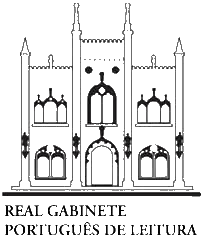Postmemory and intertextuality as devices for (re) construction of the second generation in the narratives of Djaimilia Pereira de Almeida
DOI:
https://doi.org/10.37508/rcl.2024.n52a1293Keywords:
Postmemory, Postcolonial Literature, Angolan Diaspora, Memory TransmissionAbstract
This article analyzes, based on the compositions Esse cabelo (2017) and Luanda, Lisboa, Paraíso (2019), by the Portuguese-Angolan writer Djaimilia Pereira de Almeida, the procedure of post-memory as a relevant device for the (re)construction of narratives of called second generation or children of war. The subjects of this process grew up surrounded by stories, objects and photographs that became a form of post-colonial heritage and helped to form the memory of what was not directly experienced, but was somehow transmitted to them by Family and group memory, that is, post-memory. Therefore, we will cover the trajectories of Mila, Cartola and Aquiles, characters from the mentioned novels, who had their lives transformed by immigration from Angola to Portugal. With this, we aim to bring to light the work of an importante writer from the Angolan diaspora, to evidence how the representation of the historical and subjective experience of post-colonial subjects is carried out and analyze the narrative procedures that are typical of the discourse of memory and post-memory, a term originally proposed by Marianne Hirsch to deal of the transmissions of traumatic episodes or events from one generation to another. Despite being recent, Djaimilia’s work has a substantial critical fortune, therefore, the option to study it based on a concept that is still little explored in her narratives, considering the studies of Marianne Hirsch (2008), Beatriz Sarlo (2007), Margarida Calafate Ribeiro (2013, 2020), António Sousa Ribeiro (2013), among others.
Downloads
References
ALMEIDA, Djaimilia Pereira de. Esse cabelo: a tragicomédia de um cabelo crespo que cruza fronteiras. 1. ed. São Paulo: Leya, 2017.
ALMEIDA, Djaimilia Pereira de. Luanda, Lisboa, Paraíso. 1. ed. São Paulo: Companhia das Letras, 2019.
BENJAMIN, Walter. Magia e técnica, arte e política: ensaios sobre literatura e história da cultura. Obras escolhidas. Tradução de Sergio Paulo Rouanet. 3. ed. São Paulo: Brasiliense, 1987. vol. I.
BRISKIEVICZ, Danilo Arnaldo. Os 60 anos de Little Rock e o mundo comum em Hannah Arendt. Educação & Sociedade, v. 40, p. e0179909, 2019. Disponível em: https://www.scielo.br/j/es/a/9N6N6FxPQV7DCFSQ4Wc8M9h/. Acesso em: 03 out. 2023. DOI: https://doi.org/10.1590/es0101-73302019179909
FREIXO, Adriano de. Repercussões da Revolução dos Cravos. Tensões Mundiais, v. 5, n. 8, p. 247-264, 2009.
HIRSCH, Marianne. The generation of postmemory. Poetics today, v. 29, n. 1, p. 103-128, 2008. Disponível em: https://scholar.google.com.br/scholar?hl=pt. Acesso em: 25 set. 2023. DOI: https://doi.org/10.1215/03335372-2007-019
JENNY, Laurent. A estratégia da forma. Intertextualidades: Revista de Teoria e Análise Literárias. Tradução do original Poétique: Revue de Théorie et d´Analyse Littéraires por Clara Crabbé Rocha. Coimbra: Almedina, n. 27, 1979. p. 5-49.
RIBEIRO, Margarida Calafate. Arte e pós-memória: fragmentos, fantasmas, fantasias. Diacrítica, v. 34, n. 2, p. 4-20, 2020. DOI: https://doi.org/10.21814/diacritica.523
RIBEIRO, Margarida Calafate; RIBEIRO, António Sousa. Os netos que Salazar não teve: guerra colonial e memória de segunda geração. Abril: Revista do Núcleo de Estudos de Literatura Portuguesa e Africana – NEPA UFF, v. 5, n. 11, p. 25-36, 2013. DOI: https://doi.org/10.22409/abriluff.v5i11.29660
SAMOYAULT, Tiphaine. A intertextualidade. Tradução de Sandra Nitrini. 1. ed. São Paulo: Hucitec, 2008.
SARLO, Beatriz. Tempo passado: cultura da memória subjetiva. Tradução de Rosa Freire d’Aguiar. 1. ed. São Paulo: Companhia das Letras. Belo Horizonte: UFMG, 2007.
ZAU, Filipe. Angola: trilhos para o desenvolvimento. Lisboa: Universidade Aberta, 2002.
Downloads
Published
How to Cite
Issue
Section
License
Authors who publish in Convergência Lusíada agree with the following terms:
- Authors retain copyright and grant the journal right of first publication with the work simultaneously licensed under a Creative Commons Attribution-NonCommercial 4.0 International License (CC-BY-NC 4.0) that allows others to share the work with an acknowledgment of the work's authorship and initial publication in this journal.
- Authors may enter into separate, additional contractual arrangements for the non-exclusive distribution of the journal’s published version of the work (e.g., post it to an institutional repository or publish it in a book), with an acknowledgment of its initial publication in this journal.
- Authors are permitted and encouraged to post their work online (e.g., in institutional repositories or on their website) prior to and during the submission process, as it can lead to productive exchanges, as well as earlier and greater citation of published work.

Revista Convergência Lusíada is licensed under a Creative Commons - Atribuição-NãoComercial 4.0 Internacional.









